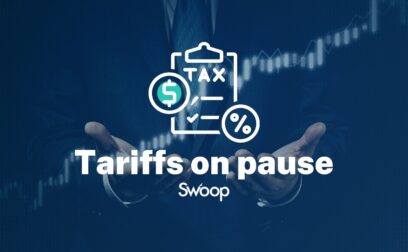TABLE OF CONTENTS
You’re looking to finance business assets – we’ve got up to $1 million in government-backed financing options for you.

Page written by Michael David. Last reviewed on October 3, 2024. Next review due April 1, 2026.

If you wish to purchase business assets such as commercial land, buildings or equipment, or if you simply wish to improve assets like these that you already own, the Canada Small Business Financing Program (CSBFP) could be a good choice for you.
The Canada Small Business Financing Program (CSBFP) is a federal government-backed program that shares lending risk with lenders such as banks and credit unions. This makes it easier for small businesses to get loans from those financial institutions. Over the past 10 years, small businesses have received over 53,000 CSBFP loans totalling $10 billion dollars.
The CSBFP program support two types of borrowing – term loans and lines of credit.
A CSBFP term loan can be used to finance the following costs:
For example, you can use a term loan to finance:
A CSBFP line of credit can be used to pay for working capital costs, meaning the day-to-day operating expenses of a business.
The main benefits of the CSBFB is that the government backing of the loans makes it easier for your small business to qualify for a term loan or line of credit.
The maximum loan amount is $1.15 million, as follows:
For term loans, the interest rates are determined by your financial institution and may be floating or fixed.
For lines of credit, the maximum chargeable is the lender’s prime lending rate plus 5%.
Businesses in almost every industry can take advantage of a small business loan or line of credit through the CSBFP program. Here are some examples:
Small businesses and startups operating in Canada with gross annual revenues of $10 million or less are eligible for the CSBFP. Farming businesses and not-for-profit organizations are not eligible.
Generally the answer is yes, however each lender decides who is approved and whether a personal guarantee is required or not. Lenders have the option of taking an unsecured personal guarantee up to the initial amount of the loan. If there is more than one borrower, the lender may ask for a joint personal guarantee, meaning all of the borrowers will become guarantors of the loan and will be accountable in the event of default.
If you are interested is borrowing without a personal guarantee, join Swoop and let us scan the market for more options for you
Yes, the Canadian federal government guarantees up to 90% of the value of a CSBFP loan. In highlights published for the 2019-2020 financial year, the CSBFP said it paid a total of 680 claims worth a total of $53.8 million to lenders. These claims were tied to loans that went into default. The average claim size was $79,072.
The following registration fees are associated with CSBFP loans:
Registration fees must be paid by the borrower to the lender, and they may be financed.
Businesses must work with their lender to determine their repayment schedule. The federal government says “payments may be adapted to a borrower’s needs,” including blended, seasonal or escalating payments.
At minimum, there must be one payment of interest and one payment of principal scheduled to be made each year. Borrowers have a maximum term of 10 years for any financing used for leasehold improvements and equipment and 15 years for any financing used to buy property.
A registration fee of 2% is charged by the CSBFP. This fee is paid to the lender and the borrower is permitted to finance this fee.
Yes, startups are eligible for CSBFP loans.
Most of the terms are negotiated between the borrower an the lender on a case-by-case basis. Depending on your credit history, business plan, use of funds and other factors, the bank or credit union will offer a maximum loan amount, interest rate and time to repay the funds.
However, the federal government does place time limits on loan repayment: Borrowers have a maximum term of 10 years to repay funds used for leasehold improvements and equipment and 15 years to repay funds used to buy property.
Although you cannot get a CSBFP loan specifically for working capital, up to $150,000 of a total term loan amount may be used for working capital. A CSBFP line of credit may be used specifically for working capital.
The purchase of eligible assets of an existing business may qualify for financing under the CSBFP. You may finance the lesser of the cost of purchase and the appraised value of the eligible assets.
The time to have a loan approved depends partly on the bank’s process and partly on how quickly you can complete your application, including providing the required financial statements and business information.
Many business find that they can be better organized and speed up the funding process when they join Swoop.
An SBA loan is a small-business loan offered by US banks and online lenders, and is partly guaranteed by the US government, similar to the CSBFP in Canada.
The SBA states that their financing is available for “businesses that are 51% owned and controlled by persons who are not citizens of the US provided the persons are lawfully in the United States.” However, as with the CSBFP, each individual lender has discretion over who they make loans to – including whether they want to provide a loan to a non-citizen.
If your business defaults on a CSBFP loan, your lender will claim the property and/or equipment that you pledged as collateral for the loan in order to cover any losses. Your credit score will likely be impacted too. Even through the government backs the lender for up to 90% of the loan amount, there can still be personal consequences if you default on the loan.
The commercial interest rate in Canada is based on the banks’ prime rate, which fluctuates according to Bank of Canada policy. In general, business loans and commercial mortgages are more expensive than personal loans and mortgages.
In the case of CSBFP loans, the maximum rate is set at 3% above prime for floating rate loans, 3% above the lender’s single family residential mortgage rate for fixed rate loans, and 5% above prime for lines of credit.
Banks and credit unions are responsible for issuing CSBFP loans, and they determine your ultimate eligibility for a loan. However, Canadian government guidelines set out the following minimum requirements:
If these requirements are met, you and the lender can negotiate a loan amount up to $1,000,000 and the other terms of that loan.
The federal government does not specify the documentation required for a CSBFP loan. This is determined by the funding institution, which can be any bank, caisse populaire, or credit union in Canada.
There are many types of financing available to Canadian small businesses, and these are just some of them:
At various times, there are also small business grants and other forms of funding such as the Canada Emergency Business Account (CEBA) that offer the potential for partial repayment or no repayment by the recipient.
Join Swoop to explore the full range of small business funding opportunities.
When you join Swoop, you can look into government-backed CSBFP loans and other types of funding fast. The application only takes minutes and we will scan the offers from banks and other lenders to quickly find you the best options.
Michael David is a financial writer and former investment advisor. Writing for Capital Group, Dimensional Fund Advisors, Franklin Templeton Investments, HSBC, Invesco, PIMCO, Vanguard, global insurance companies, major banks and others, he has educated professionals, business owners and consumers about strategies for investing, insurance, banking and corporate finance for more than 20 years.
Swoop promise
At Swoop we want to make it easy for SMEs to understand the sometimes overwhelming world of business finance and insurance. Our goal is simple – to distill complex topics, unravel jargon, offer transparent and impartial information, and empower businesses to make smart financial decisions with confidence.
Find out more about Swoop’s editorial principles by reading our editorial policy.
Related pages
Get your free Canada Small Business Financing Program (CSBFP) quote today
Join the 95,000+ businesses just like yours getting the Swoop newsletter.
Free. No spam. Opt out whenever you like.
Kingfisher Way, Silverlink Business Park, Newcastle upon Tyne, NE28 9NX, UK
View in Google Maps35 Bull Street, Lewis Building, Birmingham B4 6AF, UK
View in Google MapsAberystwyth Innovation and Enterprise Campus
Gogerddan Campus
Aberystwyth University
Ceredigion
SY23 3EE
Dogpatch Labs, The CHQ Building, Custom House Quay, Dublin, Ireland
View in Google MapsSuite 801, Level 8, 84 Pitt Street, Sydney, NSW 2000, Australia
View in Google Maps43 W 23rd St, New York, NY 10010, United States
View in Google Maps21 Dreyer Street, Cape Town, South Africa, 7708
View in Google MapsClever finance tips and the latest news
Delivered to your inbox monthly
Join the 95,000+ businesses just like yours getting the Swoop newsletter. Free. No spam. Opt out whenever you like.




